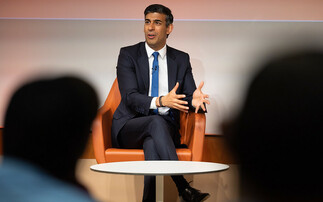A Republican-controlled Congress spells bad news for the green economy and UN climate change talks, but will it prove as disastrous as some environmentalists fear
8. The Republicans don't have a climate plan
The growing support for climate action among the public has prompted a shift in strategy from the Republican leadership. As the New York Times noted earlier this week, GOP candidates have moved from commonly attacking climate science to simply glossing over the topic with the line "I'm not a scientist".
As Michael McKenna, a Republican energy lobbyist, observed "it's got to be the dumbest answer I've ever heard". "Using that logic would disqualify politicians from voting on anything. Most politicians aren't scientists, but they vote on science policy," he explained. "They have opinions on Ebola, but they're not epidemiologists. They shape highway and infrastructure laws, but they're not engineers."
However, the Republican strategy represents progress of a sort given that the penny seems to have dropped that vocal opposition to climate science is not inherently a vote winner, particularly in the swing states the party needs to win to take back the White House. The realisation will lead to real tension in the Republican ranks, as Inhofe and his allies push for an all-out assault on Obama's climate strategy and moderates counsel that attacking popular environmental policies and denigrating scientists may harm the party in 2016.
9. Tom Steyer will be back
One of the main features of the midterms was the billionaire climate activist Tom Steyer's decision to go toe to toe with the Koch Brothers and fund campaigns in support of candidates who backed climate action. Around $65m was spent by Steyer's NextGen Climate group in congressional and state races, leading to a mixed bag of results. Races in New Hampshire were won, but high profile battles in Iowa and Colorado went to the Republicans.
However, Steyer's millions did help to push climate policy up the political agenda and with such deep pockets it looks likely that many Democrats will be able to call on green campaign dollars for the Presidential race.
10. The US green economy will continue to prosper
There is no way to spin it - US climate change policy has been dealt a significant blow and it will now be even harder for Obama to enact his environmental strategy, despite significant public support for his policies.
However, the impact on the US green economy, while negative, should not be overstated. Congress has been largely deadlocked over climate and environment policy since George W Bush's second term, after Obama passed up the opportunity to pass climate legislation in the first two years of his presidency in favour of healthcare reform. During that period the US has still cut emissions as a result of renewables and shale gas, delivered historic vehicle emissions standards, and mobilised a huge surge in clean tech investment that has made the country one of the world's renewables markets. Meanwhile, numerous state governments have enacted bold climate policies that have served to further drive green business development.
The US is still one of the world's largest greenhouse gas emitters, both on an absolute and per capita basis, and a Republican-controlled Congress will make climate investments harder to deliver. But with renewables now cost competitive in many states and Silicon Valley earmarking billions of dollars for clean tech investment Inhofe and his allies will not be able to derail US green growth.









